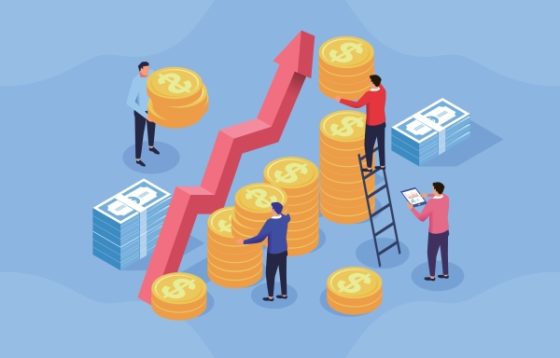How To Protect Your Family From Inflation
The economic situation of many households is rapidly changing. How to protect the family from inflation is something most breadwinners are thinking of. It can be challenging to think about finances on top of raising a family.
We want to protect our loved ones as much as possible, and that includes their everyday lives. Most of the time, it can be easy to avoid the inevitability of money problems. Even so, it’s essential to be aware of your finances if there is ever a situation involving a troubled economy.
Be prepared for anything by staying involved with basic economics. Financial obstacles can negatively affect your family in ways that you never expected.
As time goes on, prices will continue to rise and adjust according to the nation’s economic status. It’s essential to be aware of these changes so that you can plan effectively.
If you go to a local store, you’ll be able to witness the effects of a changing economy. Prices from 20 years ago are nothing compared to what they are now. Specific markets have been particularly affected, with a select few decreasing in price.
There is no denying that the cost of living has increased, and it will be necessary to be aware of its consequences. Here are all the things you need to know about protecting your family from the effects of inflation.
What’s Inflation?
Inflation is the increase of money after a certain period. More specifically, it’s the decrease in the value of money. The more expensive products become, the less money is worth per purchase.
Prices from the ’80s are entirely different now, and even the price rates from the 2000s have increased significantly. Although inflation can seem daunting, economists believe that the economy’s current status could be a positive opportunity for everyone.
The government measures inflation through the Consumer Price Index (CPI). They calculate CPI by creating a theoretical “grocery list” of goods and services an average consumer might buy. This can include other related financial needs like transportation or rent. From there, the government tracks inflation by measuring CPI. They take note of the changes over months and years.
The good news is that inflation has been relatively low in the U.S. since the ’90s. Even so, there are signs that it could significantly increase again. The annual inflation rate has been up 4.8% since July 2021 compared to 1.2% in 2020. While it’s still not as high as the ’90s, it’s been a cause for concern. But, economists believe that it’s only temporary and could be a good thing for everyone.
Shrinkflation
Shrinkflation refers to the reduction of size in a product while the price goes up. This can mean the quantity of the product decreases while the price remains constant. This can also apply if the quality of the product decreases while the price remains the same.
It can be particularly noticed in the food and beverage industry. For example, a bottle of pop maybe 4 dollars for every 2-liter bottle. If that goes down to 1.5 liters, the price will stay the same.
Shrinkflation is inflation hidden in plain sight. It isn’t immediately obvious to the naked eye, allowing consumers to buy products that have increased in price for lesser quality. The manufacturer aims to make it unnoticeable as they decrease the quantity while keeping the price the same.
Unfortunately, it isn’t illegal because producers always label their products with exact weights and sizes. It’s just a sneaky tactic that helps them combat their own personal inflation problems with suppliers.
Shrinkflation was caused by high market competition and increased production costs. Increases in the costs of materials also increase the costs of production. This decreases producers’ profit margins, creating increased product prices to make up for it.
At the same time, intense competition can also cause Shrinkflation. This is particularly true with the food and beverage industry, where consumers buy large quantities of goods simultaneously. This makes producers enable customers to stay loyal to their products and continue buying their goods.
How Can I Protect My Family?
The economy is constantly changing, making it difficult to predict its outcomes. Inflation can seem like a nuisance when you pay for things at a higher price with less quality. Even so, economists encourage everyday consumers to take advantage of inflation.
Regardless of how it may seem, inflation increases between 1-3% are a sign of a healthy economy. A growing economy means consumers spend more on increasing prices. But, it’s still important to be careful when the economy begins to expand.
For people living on a fixed income or lenders, inflation can have a negative impact on their lives. If this applies to you and your family, this is something you need to consider. Even so, it’s always important to keep track of your finances to keep you and your family healthy. Here are all the things you should do to protect your family from inflation.
Get a Job in a Growing Company
One positive effect of inflation is that it drives up wages for workers. Prices increase when consumers are buying more products, making the demand for labor high. With the need to hire more workers, employers will pay more for incoming staff.
Since workers have a lot to choose from during a strong economy, prices continue to rise. In other words, businesses raise their prices to make up for higher labor costs.
Unfortunately, this can mean that minimum-wage workers earn less for their positions. When inflation prices rise, these workers have to pay more for their own personal goods. Without a change in the minimum wage, products continue to get more expensive while their income stays the same. If you or your partner is in a minimum wage position, inflation could negatively impact your family.
Thus, one of the best choices you can make for your family is to look for another job at a growing company. This can apply to minimum wage positions. You need to discover an increasing company in today’s economy.
This can also allow you to negotiate a promotion or raise. Work with the competition to find a job that suits your family’s needs and allows you to develop other skills.
Stay on a Budget
It may seem like a simple solution, but it could save your family from financial difficulties. As inflation increases, so does the price of everything that could affect your life. This includes health care, food, fuel, housing, and more.
There are many ways to stay on a budget that goes outside of saving more on necessities. To remain on a budget, get your entire family involved with the process and work as a team.
First of all, make sure that you keep your income going while the prices of products go up. If you don’t feel like your job is paying you enough, see if you can negotiate a raise or promotion. As mentioned before, employers may be willing to work with you during times of inflation.
From there, take a look at the items you buy and see if their prices have increased. If they have, see if you can buy less of it or at generic prices.
If you notice fuel and gas prices increasing, see if you can work with your family to create another plan. Set up a carpooling system for your children and have them all take the bus to school.
Encourage everyone to bike as much as they can or use public transportation where it’s accessible. Finally, take advantage of significant investments while you can. If you need a new car, it’s much cheaper to buy it ahead of time than during times of inflation.
Make Big Purchases Now
Inflation is not a good time to save money. If anything, it’s better to borrow during a period of inflation since the money will be worthless later. If you save money to buy something later, the amount could be barely worth anything by getting the product. It may be better to keep it away in a bank, but that won’t stop the inflation rate from decreasing the money’s value.
With that said, it’s a good idea to make large purchases ahead of time rather than later. For example, if you need to buy a new fridge, you’ll want to do it before inflation rates increase the price.
Unfortunately, prices will only get more expensive as time goes on. To get the things you need for your family, take the plunge and buy them immediately.
Reduce Your Debt
Inflation is the perfect opportunity to reduce your debt. Take advantage of decreasing currency value by paying off your debt during inflation. The money you use to pay off your debt represents less purchasing power than when you took out the loan. Thus, your debt will become cheaper and easier to pay off.
For example, say your mortgage payment is an average of $200 a year. During inflation, you’re paying less while the bank is receiving less value for the dollar. With that said, banks are aware of this.
The Federal Reserve does this to control inflation, decrease borrowing, and reduce consumer spending. During periods of inflation, they’ll raise interest rates to make up for the decreasing value. For this reason, It’s essential to pay off your debt the moment you know inflation is rising.
Stay Calm and Protect Your Family
Periods of inflation can seem overwhelming, and it can feel tempting to panic. But, if you plan and know what to do before it happens, you can stay ahead of inflation. Always be aware of the nation’s economic status, stay calm, and do what you can to financially support your family.











